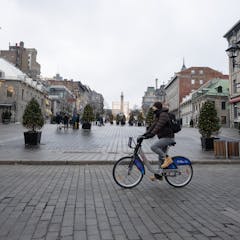
Articles on United States
Displaying 1 - 20 of 963 articles

There’s intense competition between the US and China to establish bases on the Moon.

Fears are growing that Russia may be trying to put a nuclear weapon into orbit.

These endeavors end up turning the complexity of Black life into a stunt.

China and the US dominate AI and tech in terms of spending and business, but Europe has one very clear advantage.

A tour of the US was the culmination of an extraordinary peace campaign that gathered 390,296 signatures from women all over Wales. So why does it not appear in any history books?

The US initially supported the court’s creation, but has had ambivalent feelings towards it ever since then.

The US president is ramping up tariffs on Chinese-made products, including a 100% border tax on electric cars.

Taking advantage of Europe’s sovereign debt crisis, outside investors have acquired substantial stakes in what have long been regarded as “sovereign” assets that are critical for the EU’s energy strategy.

It’s a precarious situation, but pressure from the US and Saudi Arabia, among others, is gradually pushing the two warring sides towards a deal. But a lot can still go wrong.

Iran and the US have been at loggerheads for decades. But in recent years much of the conflict has moved into cyberspace.

As of 2022, only Nigeria and Sudan had lower trade-to-GDP ratios.

The term DEI has increasingly been co-opted to attack and undermine the positions, qualifications and abilities of racialized people.

President Reagan said sending troops to Lebanon was his ‘greatest regret.’ Other presidents left office with similar misgivings. Could leaving troops in Syria and Iraq be the next strategic mistake?

Kenya’s deployment to Haiti would contribute towards the country’s role in enhancing global peace and security.

The collapse of the Francis Scott Key bridge is already affecting global supply chains.

We’ll need to learn the lessons from this disaster.

The eclipse will allow scientists to get rare measurements of the Sun’s atmosphere.

Niger is cutting military ties with the US. This has implications for security in the Sahel region.

For nearly 500 years, priests and imams justified slavery on the basis of a misunderstood passage of the Bible.

Climate change is often seen as solely a technical problem. This is a misguided belief. Understanding how to build a better world begins, and ends, with understanding the societies which inhabit it.
